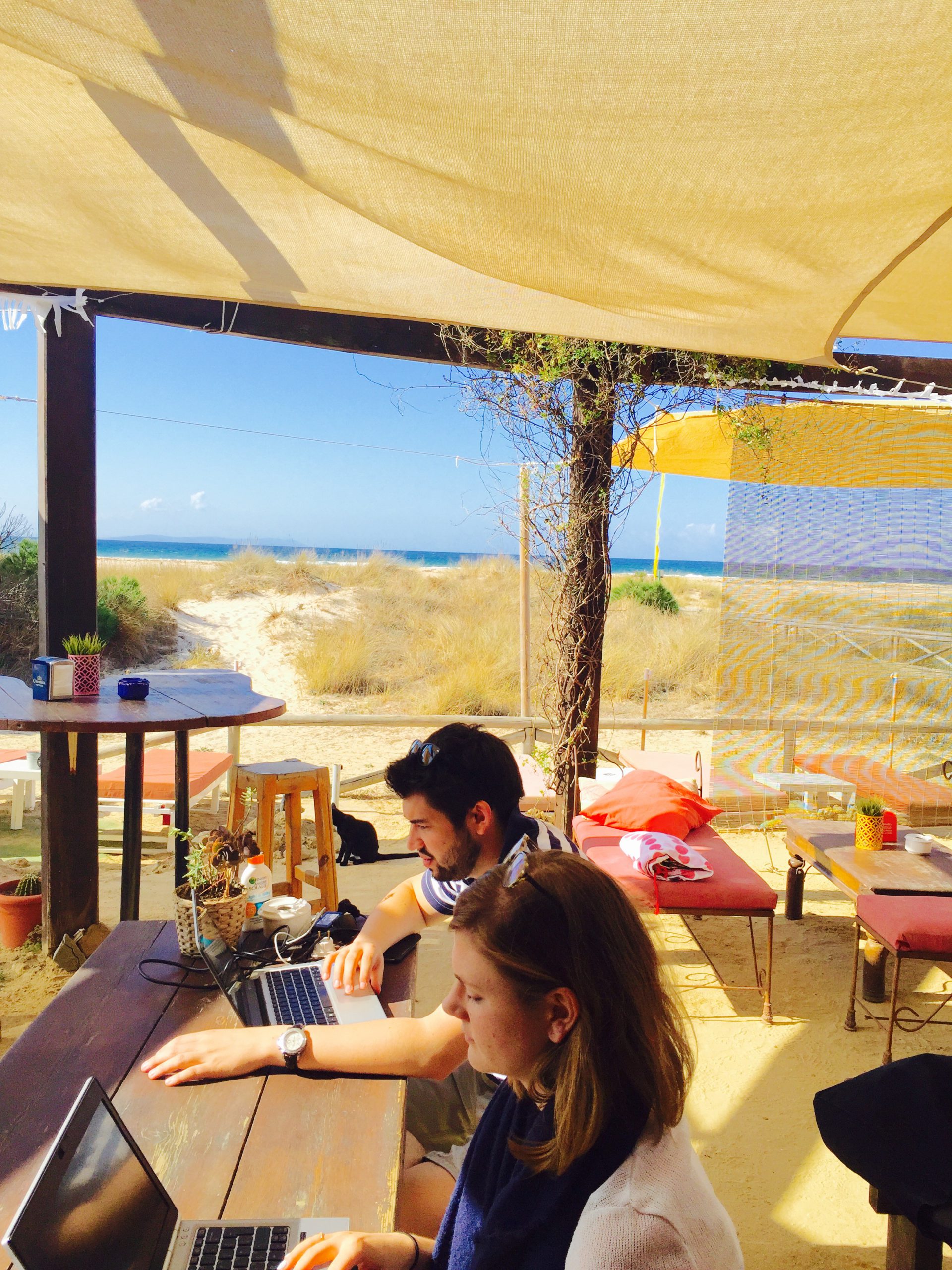
Digital nomads
Return to JournalHaving just about recovered from a hectic LDF week, Dodds & Shute decided to recharge their batteries by exploring the new lifestyle trend of remote working and became digital nomads in Tarifa.
Digital nomads are individuals or groups who work remotely from coffee shops or other public forums to accomplish tasks that traditionally took place in an office workplace. To some extent, sales people have always lived a nomadic lifestyle however, it is becoming more commonplace for people to take ‘workations’ abroad.
Why not work abroad when we are such an ‘asset light’ generation? All we require is our smartphone, laptop and a good Wi-Fi hotspot. The diversity of our nomad group (a graphic designer, sustainability consultant and fashion designer) indicate that our jobs are becoming more portable and that anyone has the potential to get involved in these remote-working schemes.
As large businesses slowly warm to the idea of remote working, some believe digital nomads are redefining what it means to be productive and relevant. Tarifa is a city that has truly embraced this concept and garnered a reputation as a hotspot for digital nomads. There are a rapidly increasing number of co-working spaces where freelancers and small companies come together to connect and collaborate.
It can only be a positive thing if we, as a small business can attract and more importantly retain talented people by showing them the flexible nature of our workplace environment. As a new and forward thinking business we want to explore flexible working practices for ourselves and future employees to ensure we can to maximise the welfare of our team.




Digital nomads
Having just about recovered from a hectic LDF week, Dodds & Shute decided to recharge their batteries by exploring the new lifestyle trend of remote working and became digital nomads in Tarifa.
Digital nomads are individuals or groups who work remotely from coffee shops or other public forums to accomplish tasks that traditionally took place in an office workplace. To some extent, sales people have always lived a nomadic lifestyle however, it is becoming more commonplace for people to take ‘workations’ abroad.
Why not work abroad when we are such an ‘asset light’ generation? All we require is our smartphone, laptop and a good Wi-Fi hotspot. The diversity of our nomad group (a graphic designer, sustainability consultant and fashion designer) indicate that our jobs are becoming more portable and that anyone has the potential to get involved in these remote-working schemes.
As large businesses slowly warm to the idea of remote working, some believe digital nomads are redefining what it means to be productive and relevant. Tarifa is a city that has truly embraced this concept and garnered a reputation as a hotspot for digital nomads. There are a rapidly increasing number of co-working spaces where freelancers and small companies come together to connect and collaborate.
It can only be a positive thing if we, as a small business can attract and more importantly retain talented people by showing them the flexible nature of our workplace environment. As a new and forward thinking business we want to explore flexible working practices for ourselves and future employees to ensure we can to maximise the welfare of our team.
Return to Journal